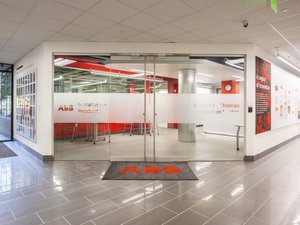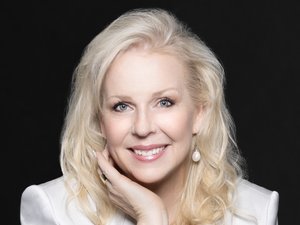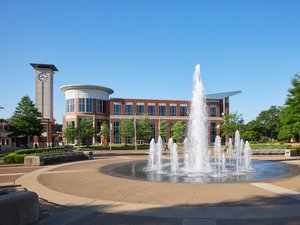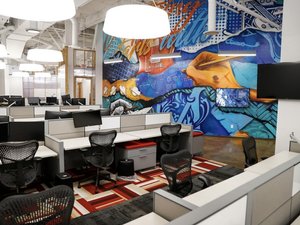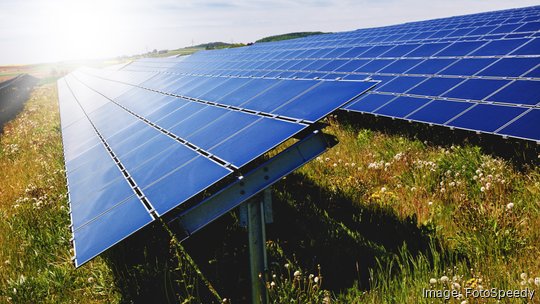
AgLaunch’s executive director, Pete Nelson, doesn’t think you can buy the trust of farmers.
“No amount of money in the world gets a farmer to trust you,” Nelson said.
So, when AgLaunch connects agtech startups to its network of farmers, there’s a lot more than money involved. Farmers do take equity positions in the fledging businesses, but they also test the products being developed. They conduct field trials and pull data. They give startups the chance to prove the viability of their product, and do peer-to-peer marketing — an effective way for the companies to gain more clientele.
As Nelson explained, “the best way to sell to a farmer is seeing another farmer using the innovation and technologies.”
This model has been effective, and over the past few years, AgLaunch’s network of farmers has grown.
“What we now have is a network across the entire country,” Nelson said. “They're all incentivized with stock to participate and scale these companies. … It literally is a whole new sort of mechanism of how you bring these kinds of technologies to markets.”
But while the network has found success, Nelson and co. believe it could have a larger impact. And, thanks to a new grant, it's poised to further grow and diversify.
'Lean deeper'
AgLaunch received a $250,000 award from the Wells Fargo Innovation Incubator (IN2), a program funded by the Wells Fargo Foundation and co-administered by the National Renewable Energy Laboratory (NREL). The nonprofit was one of seven organizations nationwide focused on clean tech and ag tech to receive a grant.
It will use the funds for several purposes. One is to expand its network of farmers by widening its scope geographically and increasing access for minority farmers. Currently, AgLaunch’s network is made up of 50 farmers who collaborate across eight states.
And it does, Nelson maintained, have “a high percentage of women and minorities.” But it wants to grow the number, and the money from IN2 could allow it to do so in areas where it doesn’t get as much state funding. The Tennessee Department of Agriculture, for instance, funds a significant amount of its work with farmers. But not every state gives this same kind of support.
“We really wanted to lean deeper into adding more African American farmers, indigenous farmers, and others … into that network and have money to work in the states where those farmers are,” Nelson said. “Mississippi is a perfect example. We don't have state support there yet. … But this allows us to do what we're able to do in Tennessee, now, with Black farmers in the Mississippi Delta.”
AgLaunch has several reasons for wanting to make its network of farmers more diverse. One is based in moral principle.
“There's a moral and ethical imperative, especially in Memphis — where our entire city was built around the agricultural industry: generally growing one crop, cotton, and generally using people of color as the labor source, non-compensated,” he said. “We have the audacity to believe we're building an entire new platform of how ag is going to work in the future. And we feel like that should be owned more equitably.”
The other reason is more business oriented. More diversity, he explained, can lead to more innovation.
“If you're going to be a real innovator — and I don't mean a small ‘i’ innovator, like figuring out a new way for a toaster to work — the data would show the two big indicators are a lot of diversity at the table … and a willingness to be sort of crazy, very risk tolerant,” Nelson said.
'Lights of innovation'
The network expansion isn’t the only effort the funds from IN2 will go toward. AgLaunch is also planning to take a model similar to its farmer network to underserved neighborhoods where there are historically Black colleges and universities (HBCUs). This plan comes through a partnership with Charlotte-based HBCU Community Development Action Coalition's (CDAC) Clean Energy Initiative.
With a focus on clean energy technology, the initiative is expected to begin in South Memphis, where AgLaunch already has partners. And while it’s still in the planning stages, Nelson is excited about the possibilities.
The goal is to work with startups to bring new clean energy and sustainability products into underserved neighborhoods by partnering with groups and individuals who are considered leaders in those communities. These stakeholders would test the products and serve as ambassadors for them. And, like the farmers, they could get equity in the startups.
“Instead of going to a neighborhood like South Memphis and asking, ‘Can we try this on your house?’" Nelson said, "We can empower them to be lights of innovation around things that would really help keep the power bills down or create an energy source."
